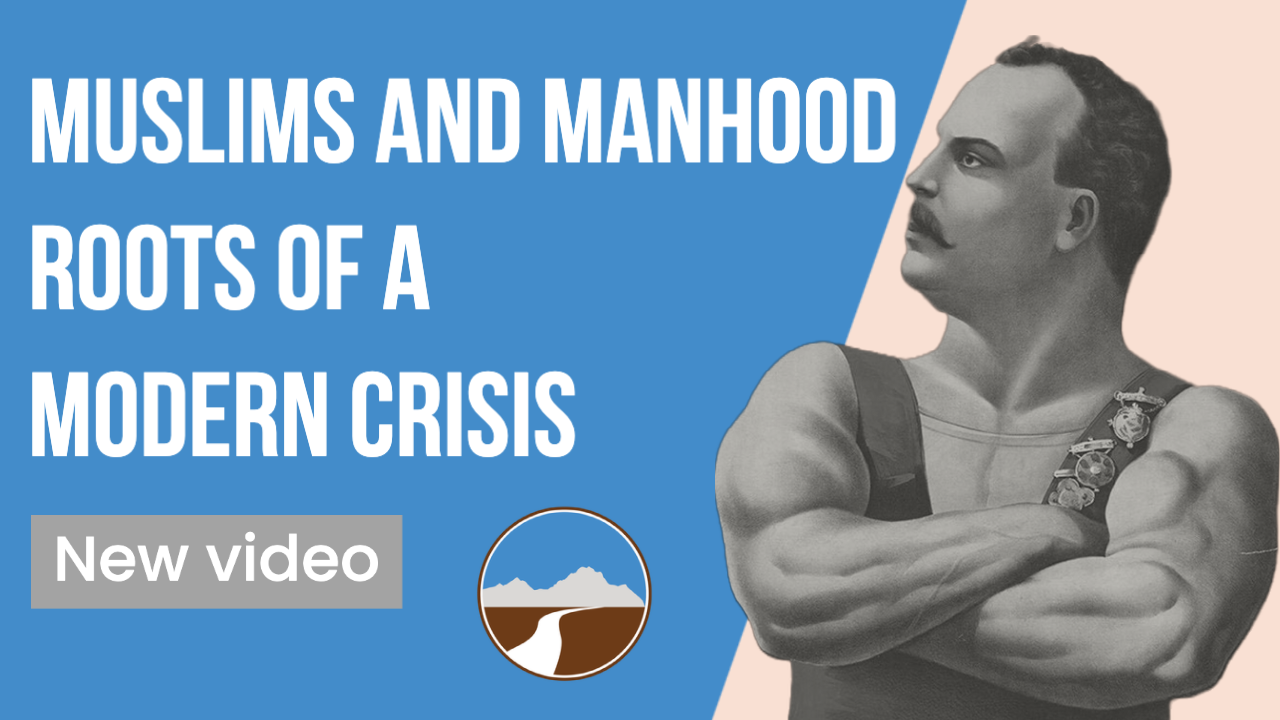July 2023

“As a literacy-based faith, Islam struggled to survive in the United States. Without access to Islamic schools and texts, Muslim slaves were hard pressed to pass on their faith to future generations. As a product of Africa's mostly oral culture, Voodoo faced no such barriers to its survival or expansion.” — Daniel L. Fountain, Slavery, Civil War, and Salvation: African American Slaves and Christianity, 1830—1870, Louisiana State University Press (2010)
It may seem an oddity to begin writing about masculinity, manhood, and its alleged crisis in our current time, by mentioning a quote from a scholar on Christianity, slavery, and religion, but I believe that much of the modern world’s problems—and this is not restricted to the subject of manhood alone—is due to an over-reliance on Christian understandings of manhood.
Quite often these understandings are more assumed then engaged, leaving in its wake an understanding shrouded in pre-rational understandings; in other words, “it’s just how things are” or worse, “how could they be any other way?” Much of the modern world, and by proxy, us as its inhabitants, embody practices that are in many ways rooted in ignorance, an ignorance founded by a subconscious understanding that leaves with a debilitating binary of options: embrace a Christian understanding of said thing (theology, masculinity, etc.) or rage against it (the sexual “revolution” of the 60’s, the rise of atheism, etc.). An emblamatic example of this is the attempt by some Muslim men, in a not-entirely-blameworthy way, to manufacture an alternative to the current attitude towards, and ever-increasing attack on, masculinity and manhood, by appealing not to religious sources (the Qur'an, the Sunnah, etc.) but by appeals and attempts to co-opt popular psychology and the zeitgeist found amongst certain alternative or right-leaning pundits.
The most concerning aspect of this new turn by (predominantly) younger Muslim men is not the desire to thwart the attempts to demonize masculinity and traditional forms of manhood but that such attempts increasingly dovetail with a strain of anti-intellectualism gripping our Ummah. As mentioned in the video below, one popular Muslim man proposed that a Muslim (or indeed, anyone) should neither trust a person who is, "friends with everyone" not can one trust a man "that doesn’t like dogs". This statement is obviously an appeal to traditional American/western masculinity that prizes a rugged individualism (apparently best) expressed in the form of keeping the company of animals, particularly dogs [link].
The issue here is manifold but two will suffice for the sake of brevity. First, even a cursory examination of Islamic scholarship will demonstrate that Islam, at best, holds that while dogs are pure they are not a preferred animal, certainly not one to be used to divine whether or not a person (let alone a fellow Muslim!) is trustworthy, and at worst, are deemed impure. In summary, a dog is just a dog and its value and worth are subject for debate; it is not a qualifier in and of itself. Secondly, to the defense of dogs, the scholar Abū Bakr Muḥammad bin Khalaf Ibn al-Marzubān (أبو بكر محمد بن خلف ابن المرزبان) wrote a famous piece of of literature of who's title translates as "The Superiority of Dogs Over Many Who Wear Clothes" (تفضيل الكلاب على كثير ممن لبس الثياب). Undoubtedly while the title is somewhat tongue-in-cheek, the author explores in his work the decline of people—predominantly men!, showcasing dogs as being noble and consistent when contrasted with their human (superior) counterparts.
My point, as I mention in the video, is that this demonstrates not only a deficiency in literacy (the book has been translated to English) but that the topic of discussing manhood and masculinity would not even make an attempt to engage Islamic sources. This is what I mean by an unprecedented form of anti-intellectualism rooted in a kind of amnesia in which increasingly we're loosing all sense of who we are and that we even exist.
“Those who cannot remember the past are condemned to repeat it.” — attributed to George Santayana